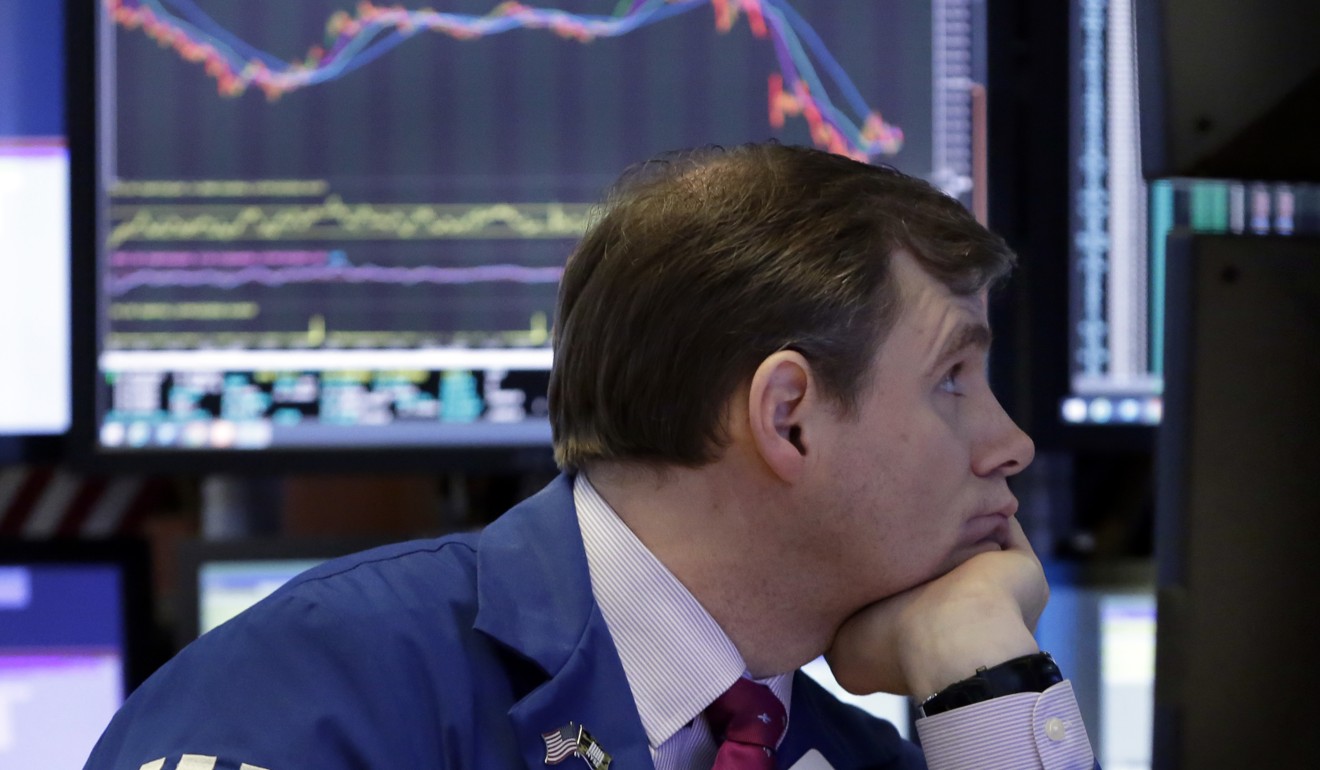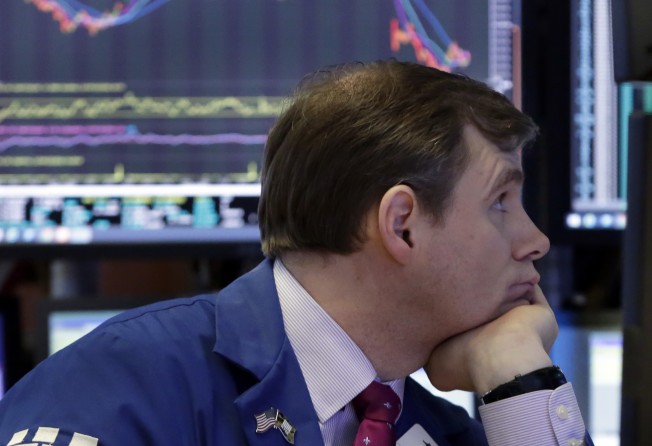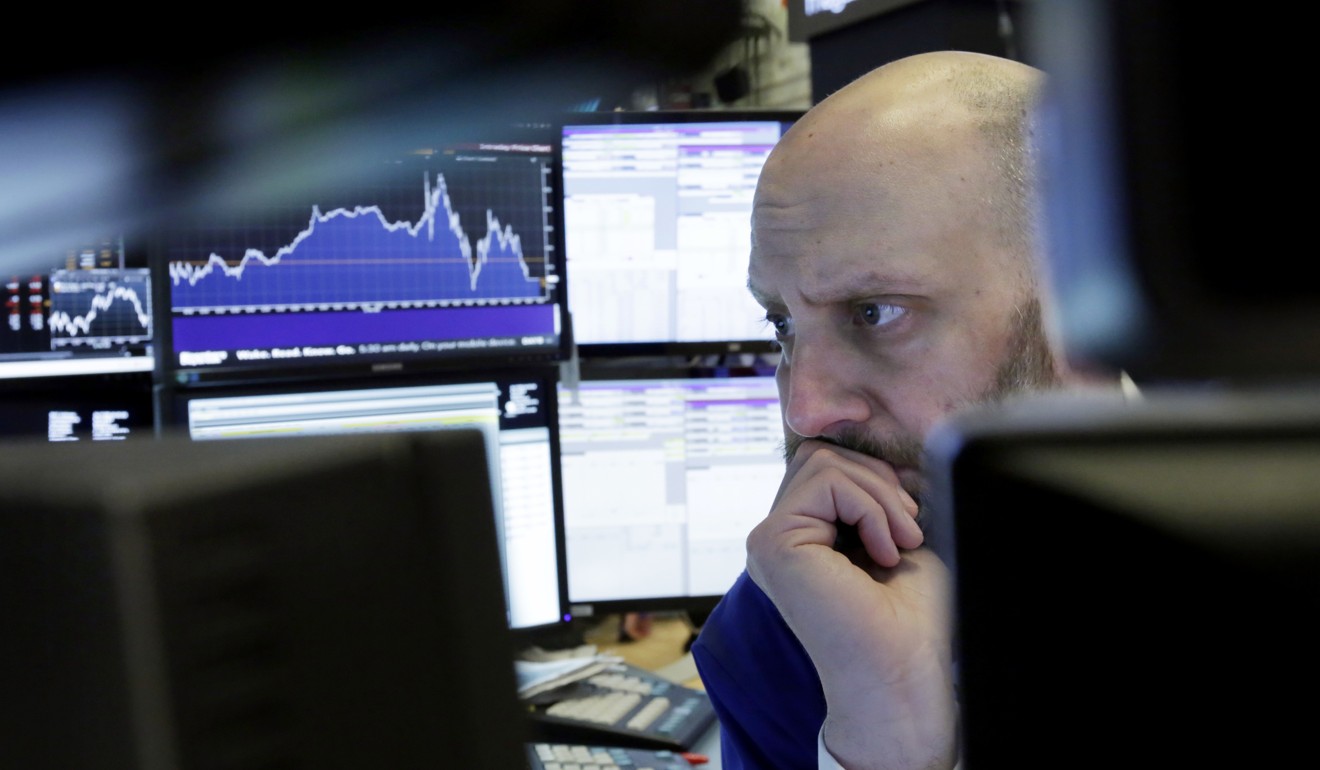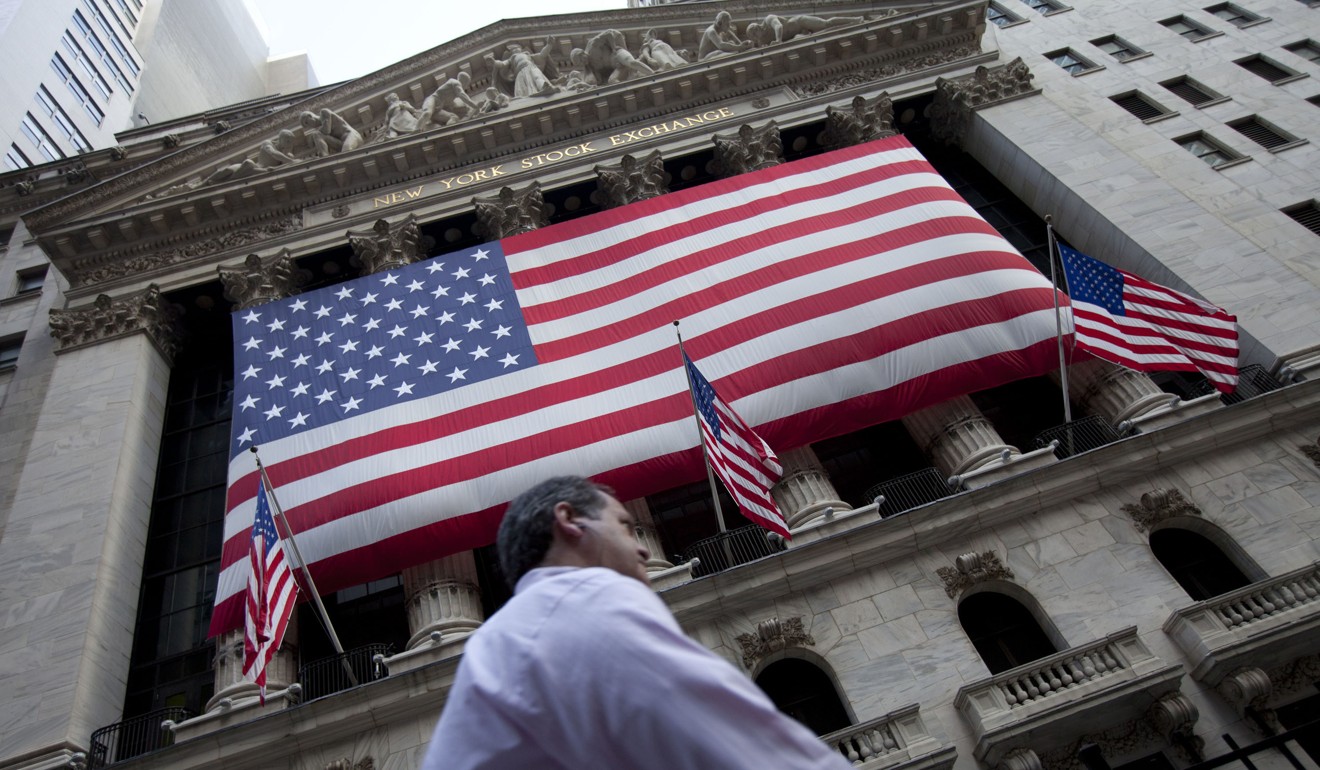
After US$900 billion plunge in global equity markets, here’s what Wall Street is saying about US tariffs and the possible trade war
Is a trade war incoming? Is the US doomed? Or will China roll over in the face of Donald Trump’s tariffs? Wall Street experts have their say

After a $900 billion, 24-hour wipeout for global equity markets, traders are left trying to suss out what comes next amid heated rhetoric over tariffs and retaliation.
Some analysts are urging investors to take cover, others say the reaction has already been way overblown.
The anxiety camp looked to be in charge late Friday, as the S&P 500 Index turned sharply lower on its way to the worst week since the February sell-off.
Other markets are more sanguine. Treasury yields edged up but sit well off the highs of the past few weeks after President Donald Trump announced plans to slap tariffs on US$50 billion worth of Chinese goods Thursday.
China fired back in a relatively muted response, with new levies on just US$3 billion of US goods.
Is a global trade war imminent? Here’s a round-up of what Wall Street has to say.

Negotiating Tactic
Matt Maley, Miller Tabak equity strategist
“Although Trump might not get us into a full-blown trade war, it sure seems like he is intent on changing the situation in a significant way.
“Therefore, we think those who say it will be a non-event … are on shaky ground.”
Daniela Mardarovici, portfolio manager at BMO Fixed Income
“In these types of situations, the initial messaging can be quite protectionist in nature. After the fact, more frequently than not, President Trump has managed to make concessions that have alleviated some of these concerns.
“We would expect – the first reaction notwithstanding – that there will be discussions that will moderate the outcome.”
Kim Wallace, Eurasia Group managing director
A compromise is “within reach,” Wallace said.
“Successful negotiations to preclude escalation and thwart tangible impact on consumers are the signposts to watch – there will likely be volatility along the way, but the president and his party cannot afford an open-ended trade war.”
Downside Worries
Peter Boockvar, chief investment officer of Bleakley Financial Group
“I’m still struggling to see how tariffs on washing machines, solar panels, steel (even though about 70 per cent of imports have been temporarily exempted), aluminium (here too) and about 100 products on Chinese imports is going to directly deal with the Chinese theft of American company IP.
“Peter Navarro and Wilbur Ross have failed to persuade me. Kudlow, when is your first day at work? How far does this go? How much will it cost American business and American consumers as we find out?”
Chris Harvey, head of equity strategy at Wells Fargo Securities
“Trade and tariffs will be an issue for at least the coming weeks, if not months. The ability for this to spiral doesn’t seem high but it is a growing possibility, especially with Gary Cohn’s resignation.
“In our view, the domestic & global rhetoric and repercussions spurred from tariff talk and Cohn’s departure will likely weigh on the market in the near-term and keep a bid to volatility.”

Reasons for Optimism
Tom Essaye, founder of “The Sevens Report”
“The legal language behind this move is, frankly, tame. This was similar to the steel/aluminium tariffs. In reality, virtually every major steel exporter to the US has acquired an exemption.
“And for all the drama of yesterday’s announcement, the legal paper work is, frankly, general and non-threatening.’’
Hans Redeker, Morgan Stanley’s global head of foreign-exchange strategy
“All eyes will be on China, which has no interest in escalating the conflict unless non-economic reasons such as the US potentially strengthening its ties with Taiwan – which Beijing argues is a violation of the “one China” policy – were to start to dominate Beijing’s thinking.
“So far, measured response has not provided relief for markets.”

Mixed Bag
Michael Gapen, Barclays chief US economist
“The decision injects downside risk to our outlook for four rate hikes by the Federal Reserve this year.
“If activity slows or labour market conditions weaken, we believe the Fed would be more likely to delay its normalisation plans for interest rates even if higher import prices boost short-term inflation outcomes.
“A more serious escalation that threatens the US recovery could lead to a pause in balance sheet normalisation, though it is far too early to draw any such conclusion.”
Alec Phillips, Goldman Sachs Group Inc. economist
Phillipa said that tariff announcements are “slightly less negative than expected” and that “we would expect that these sectors would include, at a minimum, the areas highlighted in the ‘Made in China 2025’ report.”
They were, he said:
- Next-generation information technology
- Automated machinery, tools and robotics
- Aerospace equipment
- Maritime equipment and hi-tech shipping
- Advanced rail equipment
- New-energy vehicles and energy-saving technology
- Electrical/power equipment
- Agricultural equipment
- New materials
- Biopharma and advanced medical devices